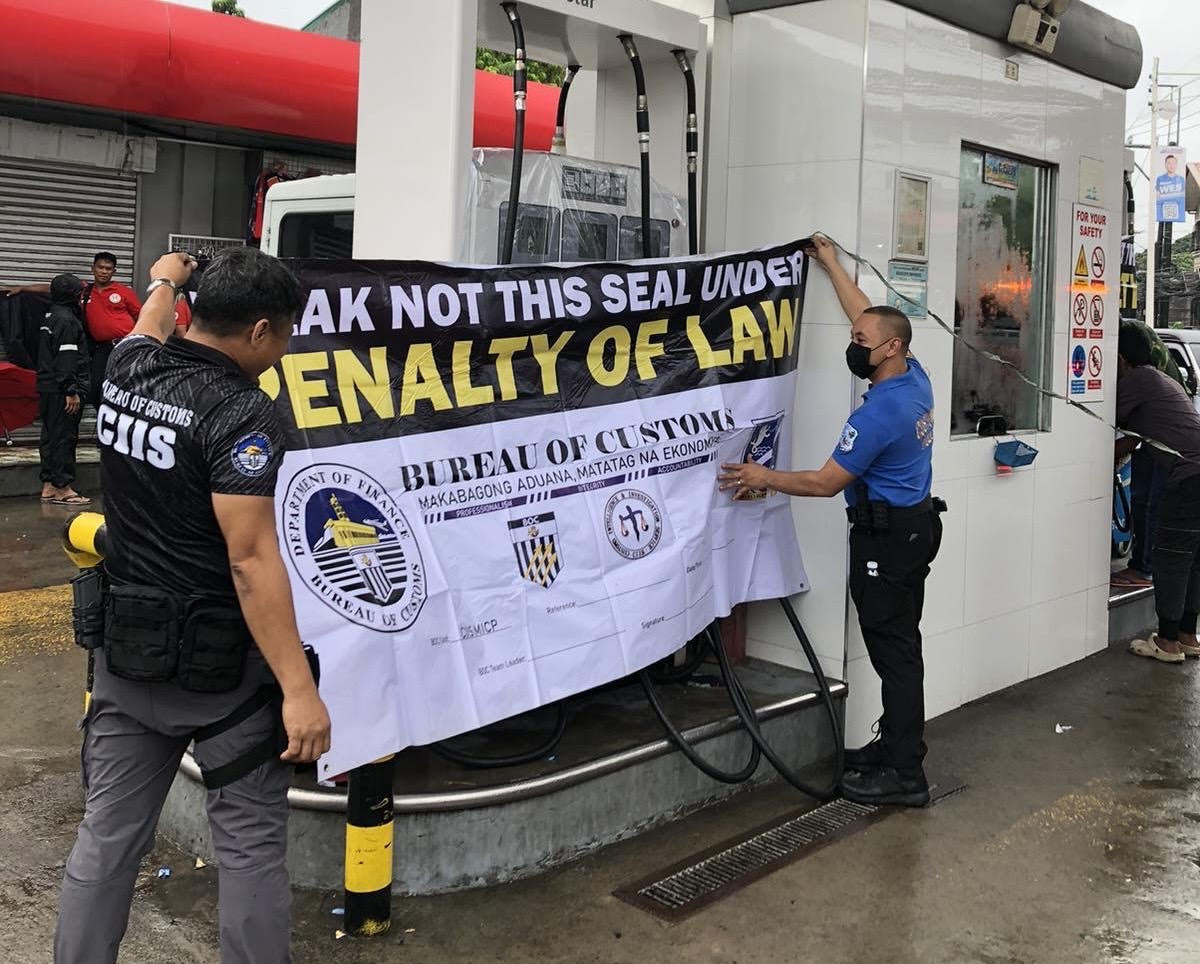BOC shuts down Valenzuela gas station with P3.1M unmarked fuel

Operatives of the Bureau of Customs have padlocked a fuel refilling station in Valenzuela City after it was found to be selling unmarked fuel worth P3.1 million.
In a statement on Friday, the BOC’s Customs Intelligence and Investigation Service-Manila International Container Port (CIIS-MICP) said the operation was conducted on September 5 at a fuel refilling station in Ugong, Valenzuela City, during which operatives found that three of the station’s four tanks failed the fuel mark test conducted by the agency and Enforcement Group-Fuel Marking agents.
“These fuel marking tests are done to ensure that the fuel being sold to our consumers is safe and has been properly tested and vetted,” said Customs Commissioner Bienvenido Rubio.
BOC-CIIS Director Verne Enciso said that the agents proceeded to the fuel refilling station to conduct a “Chain of Custody Activities,'' which included marking, sampling, and testing of fuels from the source, carrier vehicle/vessel, and destination retail/fuel stations or storage.
“After the gas station representative acknowledged the Mission Order, our personnel collected samples from the four fuel tanks there. Tank numbers one to three failed the test, while tank four passed,” said Enciso.
The BOC-CIIS director explained that unmarked fuel, or the lack of an official fuel marker, indicates the lack of necessary duties and taxes.
Fuel markers are used to guarantee product integrity and protect against counterfeiting and tax fraud.
Intelligence Group Deputy Commissioner Juvymax Uy said fuel tanks number one to three that failed the fuel mark testing contained 19,196 liters of premium gasoline, 18,680 liters of unleaded gasoline, and 19,098 liters of blended diesel, respectively.
Of the four tanks that were tested, only the fourth tank, which had 4,000 liters of blended diesel, passed the fuel marking test.
“Every successful operation by the BOC results in a safer community. Selling unmarked fuel puts people, businesses, and communities at risk. Without the necessary fuel markers, we cannot be sure of the safety of the fuel being sold in the market. This isn’t just about money and taxes; this is also about the lives of the people selling and consuming these products,” said Uy.
The fuel samples will undergo confirmatory testing by the SGS Main Laboratory.
“The BOC team also temporarily padlocked and sealed the gasoline station. A tarpaulin was also placed to warn potential buyers,” the Customs said. —VBL, GMA Integrated News




